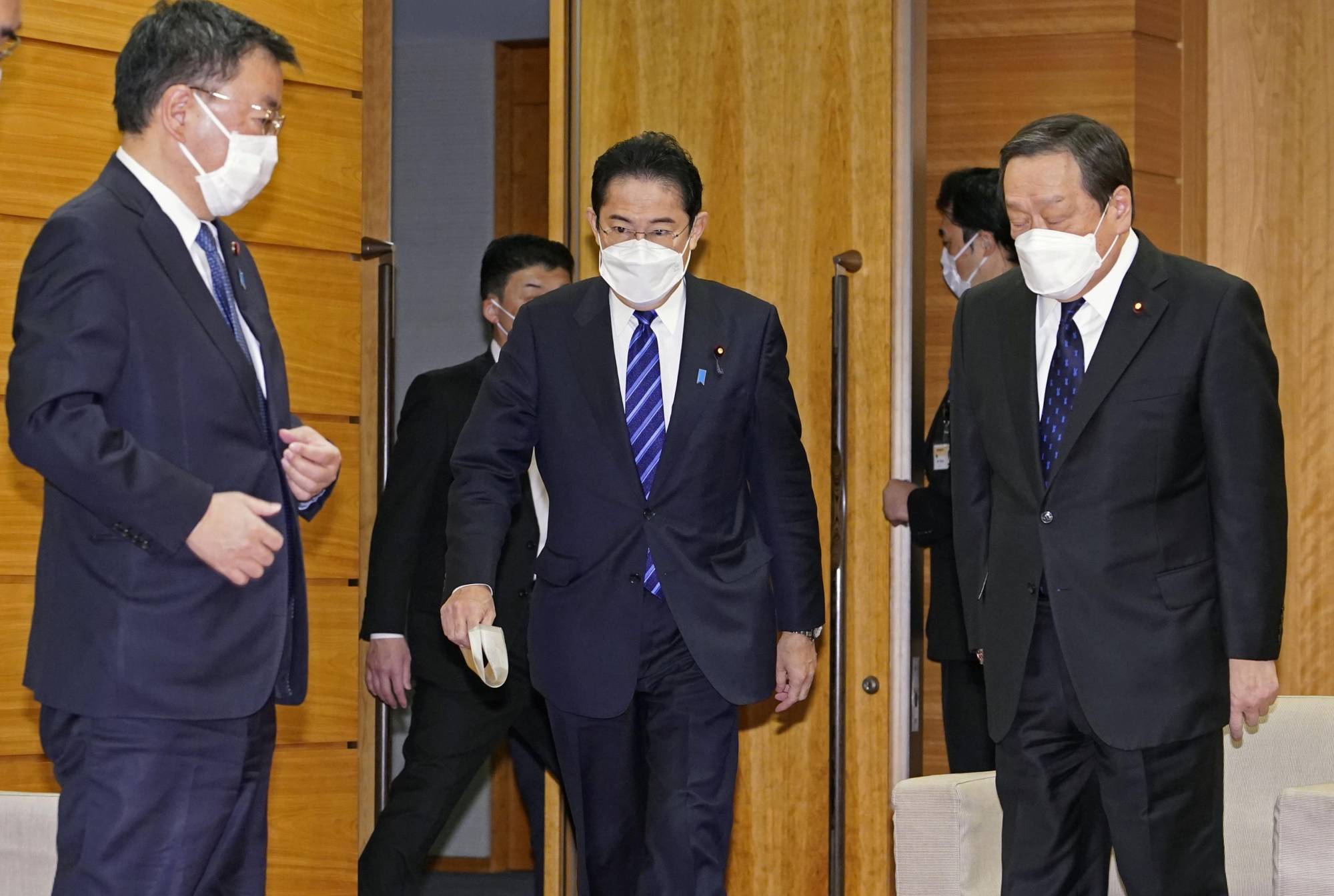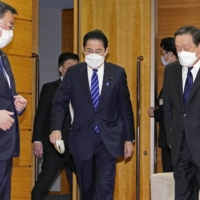The Cabinet on Friday approved a bill designed to support domestic defense equipment producers and tighten up the management of sensitive information on their products, with the nation focusing on strengthening its deterrence capabilities.
The bill stipulates that the government will set up frameworks and subsidy systems to provide incentives for Japanese defense equipment firms to diversify their supply chains and beef up their cybersecurity.
The legislation also prescribes new criminal penalties — fines of up to ¥500,000 ($3,800) or imprisonment for up to one year — for leaking designated secrets, including those regarding defense equipment.
Under the envisaged law, the government plans to give financial aid to companies that introduce facilities for streamlining their manufacturing processes and to enterprises that want to take over businesses from others.
In a bid to facilitate Japanese defense exports in the future, the bill proposes that a foundation be established to offer subsidies for firms to help them meet requests for specification changes on their products when selling defense equipment to other countries.
Currently, Japan's "three principles" on the overseas transfer of defense equipment and technology effectively ban weapon exports under its pacifist Constitution, except for joint development or production projects with a foreign nation.
In the National Security Strategy, Japan's long-term policy guideline updated in December, the government of Prime Minister Fumio Kishida said it will consider reviewing the three principles to "build a strong and sustainable defense industry."
In a major shift in its defense policy, Japan also pledged in the revised strategy to acquire so-called counterstrike capabilities to attack targets in enemy territory and promised to double defense spending over five years.




